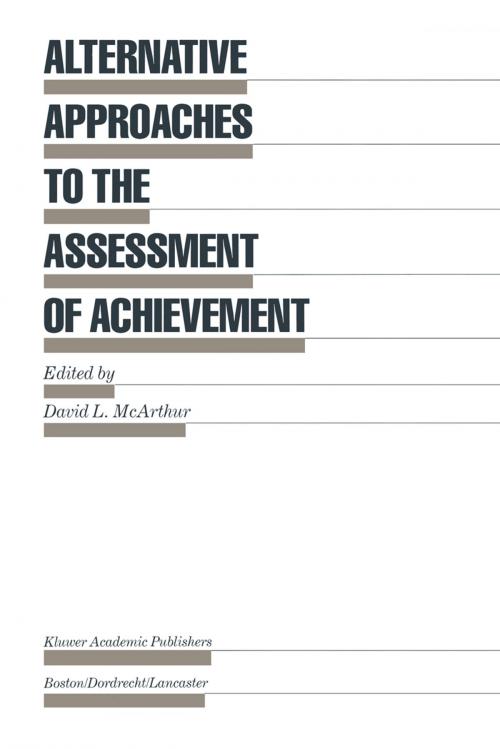Alternative Approaches to the Assessment of Achievement
Nonfiction, Reference & Language, Education & Teaching, Educational Theory, Evaluation, Testing & Measurement| Author: | ISBN: | 9789400932579 | |
| Publisher: | Springer Netherlands | Publication: | December 6, 2012 |
| Imprint: | Springer | Language: | English |
| Author: | |
| ISBN: | 9789400932579 |
| Publisher: | Springer Netherlands |
| Publication: | December 6, 2012 |
| Imprint: | Springer |
| Language: | English |
Ingrained for many years in the science of educational assessment were a large number of "truths" about how to make sense out of testing results, artful wisdoms that appear to have held away largely by force of habit alone. Practitioners and researchers only occasionally agreed about how tests should be designed, and were even further apart when they came to interpreting test responses by any means other than categorically "right" or "wrong." Even the best innovations were painfully slow to be incorporated into practice. The traditional approach to testing was developed to accomplish only two tasks: to provide ranking of students, or to select relatively small proportions of students for special treatment. In these tasks it was fairly effective, but it is increasingly seen as inadequate for the broader spectrum of issues that educational measurement is now called upon to address. Today the range of questions being asked of educational test data is itself growing by leaps and bounds. Fortunately, to meet this challenge we have available a wide panoply of resource tools for assessment which deserve serious attention. Many of them have exceptionally sOphisticated mathematical foundations, and succeed well where older and less versatile techniques fail dismally. Yet no single new tool can conceivably cover the entire arena.
Ingrained for many years in the science of educational assessment were a large number of "truths" about how to make sense out of testing results, artful wisdoms that appear to have held away largely by force of habit alone. Practitioners and researchers only occasionally agreed about how tests should be designed, and were even further apart when they came to interpreting test responses by any means other than categorically "right" or "wrong." Even the best innovations were painfully slow to be incorporated into practice. The traditional approach to testing was developed to accomplish only two tasks: to provide ranking of students, or to select relatively small proportions of students for special treatment. In these tasks it was fairly effective, but it is increasingly seen as inadequate for the broader spectrum of issues that educational measurement is now called upon to address. Today the range of questions being asked of educational test data is itself growing by leaps and bounds. Fortunately, to meet this challenge we have available a wide panoply of resource tools for assessment which deserve serious attention. Many of them have exceptionally sOphisticated mathematical foundations, and succeed well where older and less versatile techniques fail dismally. Yet no single new tool can conceivably cover the entire arena.















